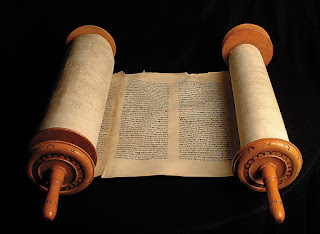"14 And when a man shall sanctify his house to be holy unto the LORD, then the priest shall estimate it, whether it be good or bad: as the priest shall estimate it, so shall it stand. 15 And if he that sanctified it will redeem his house, then he shall add the fifth part of the money of thy estimation unto it, and it shall be his. 16 And if a man shall sanctify unto the LORD some part of a field of his possession, then thy estimation shall be according to the seed thereof: an homer of barley seed shall be valued at fifty shekels of silver. 17 If he sanctify his field from the year of jubile, according to thy estimation it shall stand. 18 But if he sanctify his field after the jubile, then the priest shall reckon unto him the money according to the years that remain, even unto the year of the jubile, and it shall be abated from thy estimation. 19 And if he that sanctified the field will in any wise redeem it, then he shall add the fifth part of the money of thy estimation unto it, and it shall be assured to him. 20 And if he will not redeem the field, or if he have sold the field to another man, it shall not be redeemed any more. 21 But the field, when it goeth out in the jubile, shall be holy unto the LORD, as a field devoted; the possession thereof shall be the priest’s. 22 And if a man sanctify unto the LORD a field which he hath bought, which is not of the fields of his possession; 23 Then the priest shall reckon unto him the worth of thy estimation, even unto the year of the jubile: and he shall give thine estimation in that day, as a holy thing unto the LORD. 24 In the year of the jubile the field shall return unto him of whom it was bought, even to him to whom the possession of the land did belong. 25 And all thy estimations shall be according to the shekel of the sanctuary: twenty gerahs shall be the shekel." — Leviticus 27:14 KJV.
HOUSES AND FIELDS VOWED, 14-25.Since religious considerations may prompt a person in the greatness of his joy for his deliverance or the extremity of his distress to pledge as an offering to God the substantial interests of life, as houses and lands, the statutes must regulate the manner of executing such a vow.
14. Sanctify his house — Sanctification, when predicated of a thing, signifies to consecrate or set apart to a holy use. The devotion of the heart to the Giver of all good finds expression in acts of self-denial and sacrifice, especially in divesting ourselves of worldly goods, to which we so tenaciously cling. The use of property is a touchstone of character. As the priest shall estimate — A delicate duty is here laid upon the priest, requiring in him not only a good judgment and an acquaintance with values, but also the qualities of impartiality and freedom from avarice, since his decision involves his own financial interests. A conscientious priest would naturally incline to an under estimate, since the money paid as the redemption of the object vowed is in reality a free will offering which might have been innocently withheld by abstaining from the vow.




